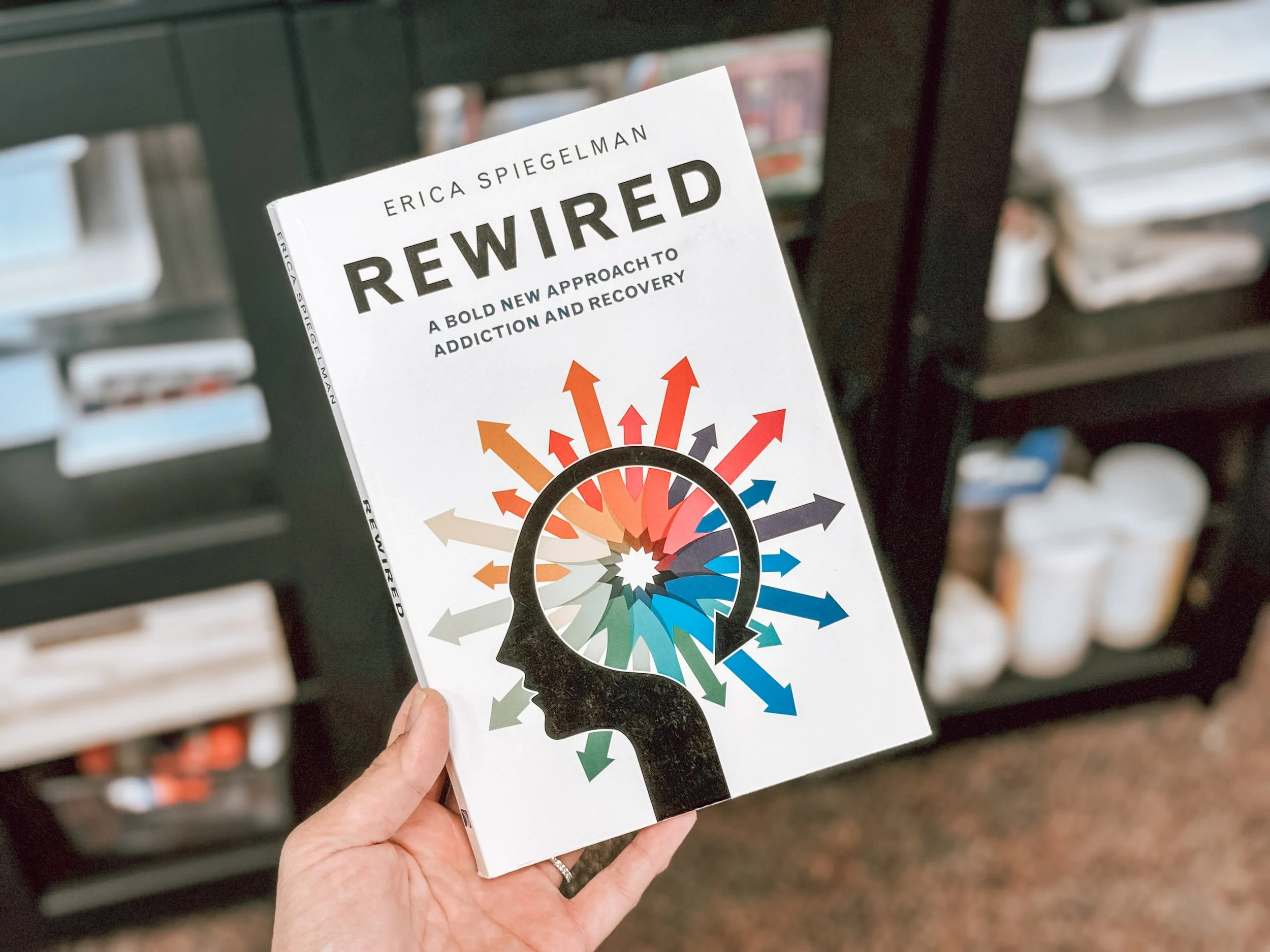Rewiring Your Mind for Recovery and Growth
In today's fast-paced world, breaking unhealthy habits or overcoming negative thinking can feel overwhelming. Whether you're facing addiction, anxiety, or seeking balance, Rewired by Erica Spiegelman offers practical, accessible tools for personal growth and recovery. With compassion and insight, Spiegelman guides readers to "rewire" their mental, emotional, and spiritual habits, helping them take control of their lives and build lasting well-being. While focused on addiction recovery, her holistic approach makes this book valuable for anyone seeking positive change and self-awareness.
Core Themes and Therapeutic Value in Recovery
Spiegelman draws on cognitive-behavioral therapy (CBT) and mindfulness practices to help readers cultivate self-awareness, kindness, and intention in daily life. These principles are broken down into practical exercises that readers can immediately apply.
Principle 1: Breaking Behavioral Patterns
One of the main focuses of Rewired is identifying the habits and thought patterns that fuel negative behaviors like addiction. Spiegelman encourages using a “behavior journal” to identify emotional triggers and change habits from the root.
Principle 2: Emotional Regulation and Building Resilience
Emotional regulation is another critical component in recovery and mental health. One exercise she highlights is the "STOP Technique"—where you Stop, Take a breath, Observe your feelings, and Proceed with awareness. This technique helps interrupt automatic, unhealthy reactions, allowing you to respond more intentionally. Spiegelman also emphasizes practicing self-kindness by creating daily affirmations like "I am worthy of recovery" or "I can handle difficult emotions."
Principle 3: Mindfulness and Self-Reflection Practices
Spiegelman’s approach incorporates mindfulness, encouraging readers to stay present in the moment and observe their thoughts without judgment. Spiegelman advocates for daily self-reflection exercises, asking readers to slow down and pay attention to their thoughts, actions, and feelings. By becoming more mindful, readers can start to break the automatic cycles of negative thinking that contribute to addiction and mental health struggles.
Principle 4: Physical, Mental, and Spiritual Wellness Integration
Focus on whole-body healing through physical activity, meditation, and journaling, supporting mental and spiritual health. Spiegelman encourages readers to cultivate practices that support physical health (such as proper nutrition and exercise), mental clarity (through journaling and goal-setting), and spiritual wellness (through meditation and connecting to a higher purpose). This holistic approach aligns with many trauma-informed and integrative therapy models, which recognize that true healing must be multidimensional.
Common Symptoms Addressed in Rewired
Though primarily targeted toward individuals in addiction recovery, Spiegelman’s book touches on a broad range of emotional and psychological symptoms, making it relevant for readers dealing with:
Anxiety and Stress: The book provides grounding exercises and mindfulness techniques to manage overwhelming feelings.
Depression: Spiegelman encourages self-care routines and strategies for staying connected to positive sources of energy and purpose.
Low Self-Esteem: Through self-compassion exercises and affirmations, the book helps readers rebuild their sense of self-worth.
Loneliness and Isolation: Emphasizing community support and connection, Rewired encourages readers to seek meaningful relationships and break patterns of isolation.
Shame and Guilt: Spiegelman addresses these emotions head-on, offering tools to reframe self-perception and release destructive feelings associated with past mistakes.
Therapeutic Suggestions and Practical Tools from Rewired
Spiegelman offers a variety of strategies to help readers address these issues, some of which include:
Daily Affirmations: Shift negative self-talk with positive affirmations.
Behavior Journals: Track patterns to understand and change habits.
STOP Technique: Pause and reset when feeling overwhelmed.
Morning Walks: Boost mood with a simple daily walk.
Rewired is more than just a recovery guide—it’s a blueprint for holistic healing and self-empowerment. Through her compassionate, practical approach, Erica Spiegelman offers readers the tools to reclaim their lives, not just by quitting unhealthy habits, but by embracing new ones that nourish the mind, body, and spirit. Whether you’re struggling with addiction, anxiety, depression, or simply looking for guidance in cultivating a healthier, more intentional life, Rewired provides a comprehensive and accessible roadmap to personal transformation.
For anyone looking to "rewire" their approach to well-being, this book serves as both a guide and a companion on the path to healing and self-discovery.


